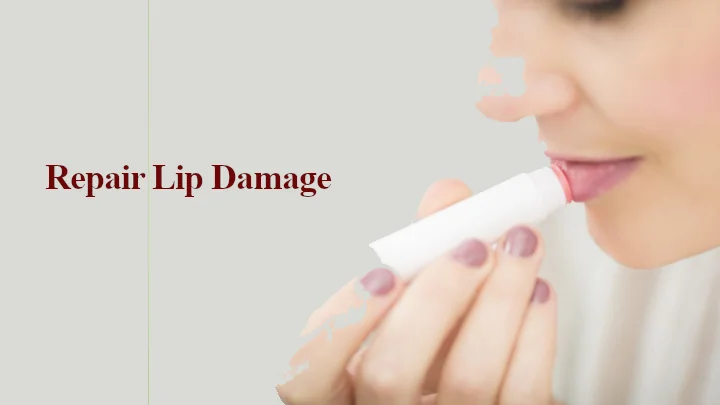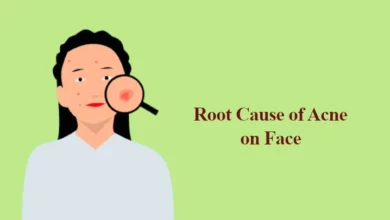Repair Lip Damage: Must-Have Healing Products

Lips are one of the face’s most sensitive and noticeable features, and their health often reflects our overall well-being. However, harsh weather, dehydration, and confident lifestyle choices can lead to damaged, chapped, or dry lips.
This article explores various must-have products like a lip mask and methods to effectively repair lip damage, ensuring they remain soft, healthy, and resilient. It’s essential to approach lip care with the same diligence as skin care, understanding that preventive measures are as necessary as treatment.
Understanding Lip Damage: Causes and Effects
1. Environmental Factors and Lifestyle Habits
Before diving into the solutions, it’s essential to understand what causes lip damage. Environmental elements like extreme cold or heat, wind, and UV exposure can strip away moisture.
Additionally, habits like smoking, excessive lip-licking, and using low-quality cosmetic products can exacerbate the problem.
Recognizing these factors is the first step toward effective treatment and prevention. Even indoor factors like dry air from heating systems in the winter can contribute to lip dryness, making year-round care important.
Choosing the Right Products: A Guide to Lip Healing
1. Hydrating Lip Balms
The cornerstone of lip care is a good lip balm. Products containing natural moisturizers such as shea butter, coconut oil, or jojoba oil are excellent for restoring hydration.
Look for balms free from irritants like artificial fragrances or colors, as these can further damage sensitive lip skin. Balms that include vitamins and antioxidants can provide additional healing and protective benefits.
2. SPF-Infused Lip Products
Sun damage can be a significant contributor to lip dryness and chapping. Lip balms or sticks with added SPF provide a dual moisturizing function while protecting from harmful UV rays.
Regular application, especially outdoors, is key to maintaining healthy lips. SPF protection is often overlooked in colder months but is just as crucial year-round.
3. Nourishing Lip Masks
For intensive care, especially overnight, lip masks can be a game-changer. These products often contain vitamins, hyaluronic acid, and other emollients that deeply nourish and repair lips while you sleep.
They can be particularly beneficial in colder months or dry climates. Using a lip mask regularly can expedite healing and restore suppleness to the lips.
4. Gentle Exfoliating Products
Sometimes, removing dead skin cells is necessary to allow healing products to penetrate effectively. Gentle lip scrubs, preferably with natural exfoliants like sugar, can help remove flakiness.
However, it’s essential to use these products sparingly to avoid irritation. Exfoliating once a week is typically sufficient to maintain smooth lips without causing harm.
5. Oil-based Treatments
Oils like almond, argan, and even simple olive oil can be excellent for repairing damaged lips. They not only moisturize but also create a barrier that locks in hydration.
These can be used alone or under your regular lip balm for an extra layer of protection. Their natural composition makes them a safe and effective option for most skin types.
Adopting Healthy Lip Care Habits
1. Stay Hydrated
One simplest yet most effective way to maintain lip health is by staying hydrated. Drinking plenty of water ensures that your lips and the rest of your body remain hydrated from the inside out. This internal hydration is often reflected in the softness and health of the lips.
2. Balanced Diet for Lip Health
A nutrient-rich diet contributes significantly to skin health. Vitamins A, C, and E are particularly important for maintaining the integrity and moisture of the lips.
Foods rich in these vitamins and omega-3 fatty acids can help repair and prevent lip damage. Including nuts, seeds, and leafy greens can provide these essential nutrients.
3. Avoid Harmful Habits
Identifying and avoiding harmful habits such as smoking, biting, or licking lips can prevent further damage. Additionally, be mindful of the ingredients in your lip products and cosmetics; opting for natural, hypoallergenic options is often the safest. Changing these habits can improve lip health and contribute to overall well-being.
Managing Lip Damage in Extreme Conditions
1. Extra Care in Harsh Weather
Additional measures may be necessary in extreme weather conditions, whether hot or cold. Using a thicker, more protective balm and reapplying frequently can provide the extra care needed in such environments. Covering your lips with a scarf in cold, windy weather can also offer protection.
2. Consulting Professionals for Severe Cases
If lip damage persists or is severe, consulting a dermatologist or skincare professional is advisable. They can provide personalized advice and treatments, especially if the damage is due to an underlying health condition. Sometimes, prescription treatments may be necessary to heal severe lip damage.
Conclusion
Repairing lip damage is not just about topical treatments; it encompasses a holistic approach that includes environmental awareness, lifestyle adjustments, and choosing the right products.
This comprehensive care ensures the healing of damaged lips and their long-term health and resilience. By incorporating these tips and tricks into a daily regimen, one can maintain soft, nourished, and healthy lips, enhancing overall facial aesthetics and comfort.
Embracing this holistic approach to lip care can lead to noticeable improvements, making chapped and damaged lips a concern of the past.





